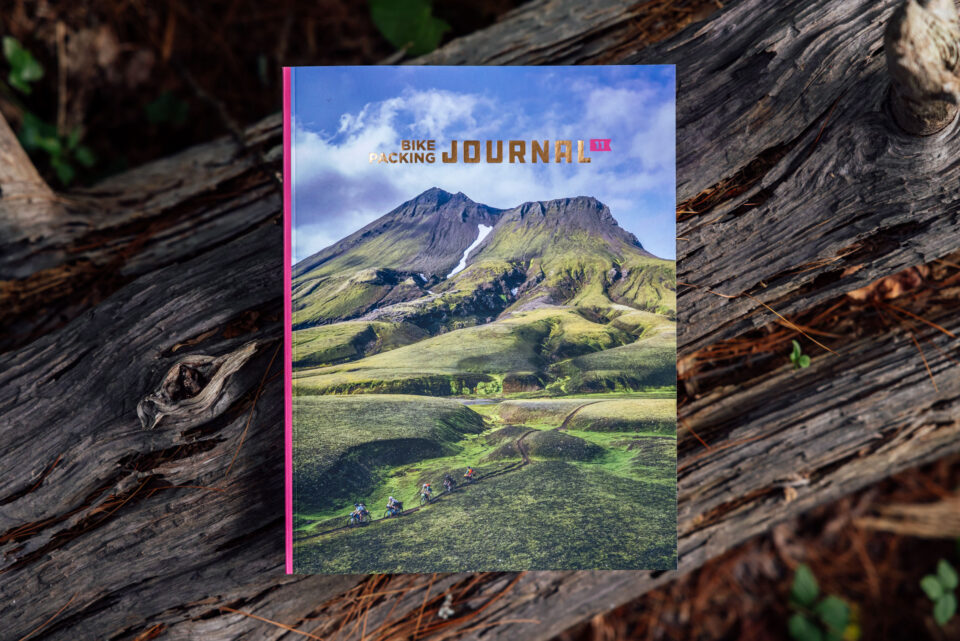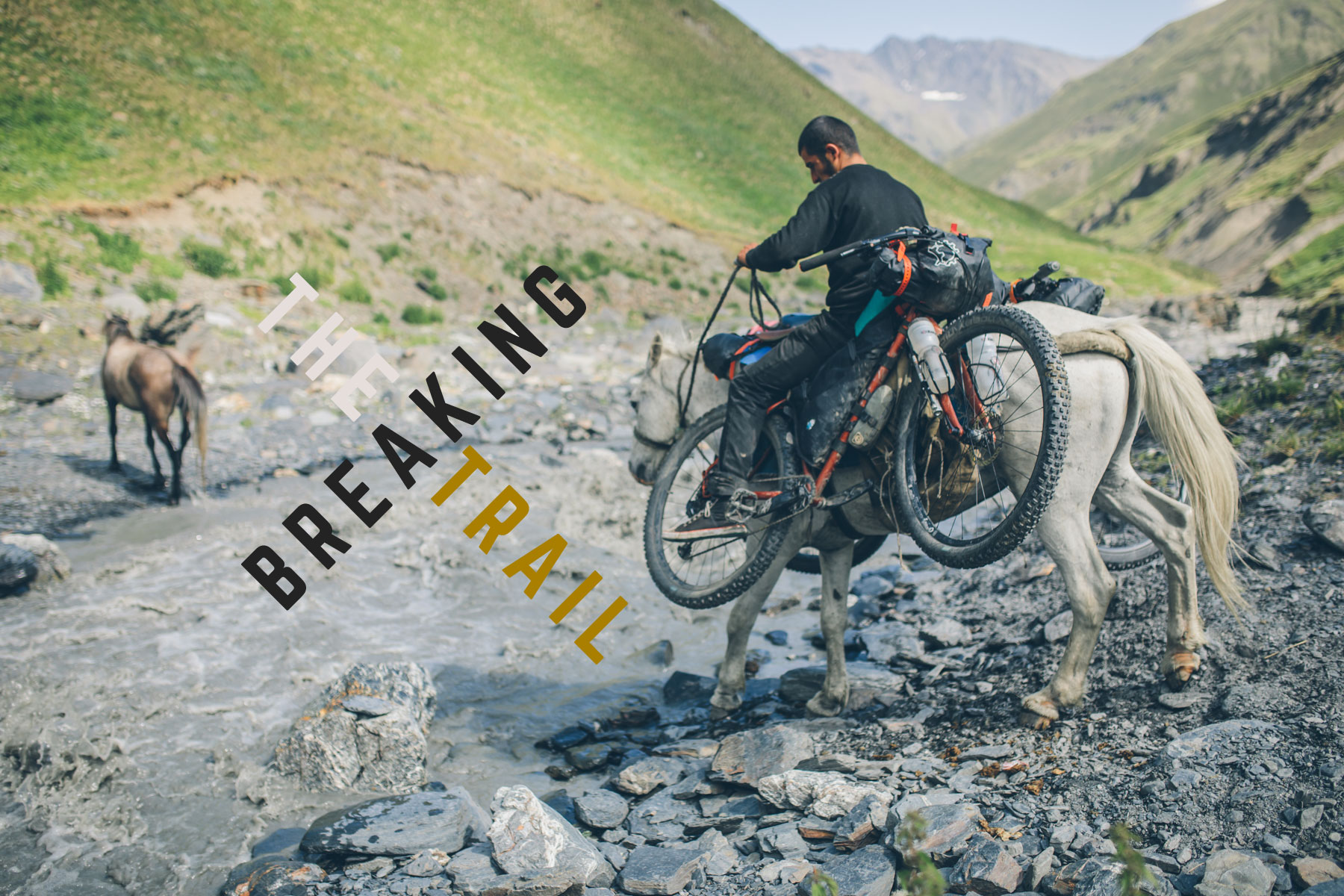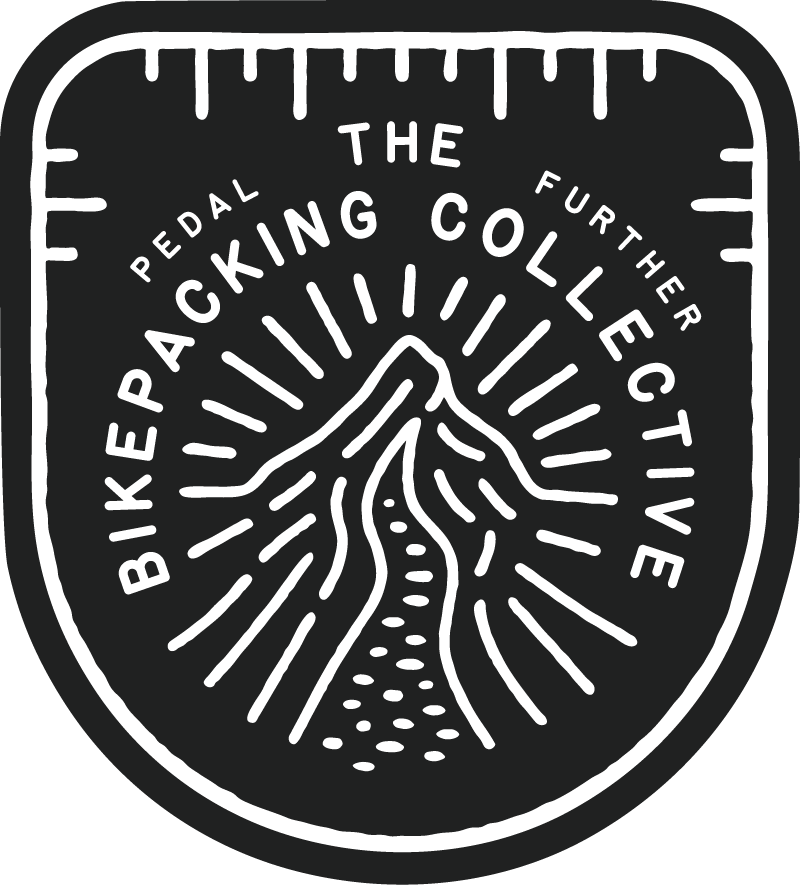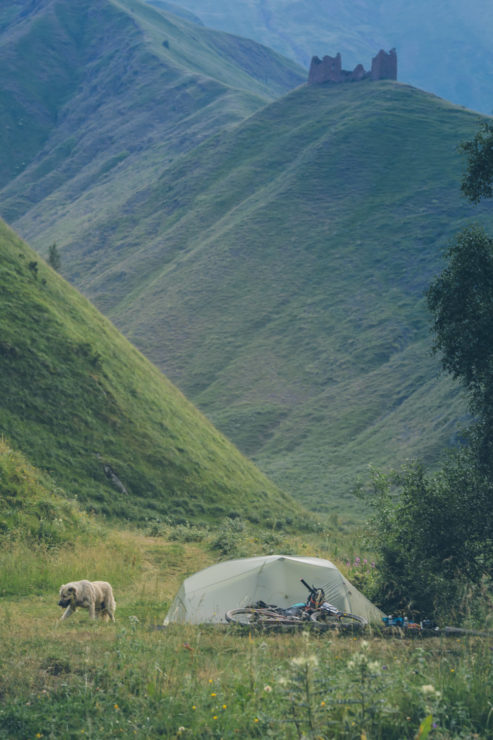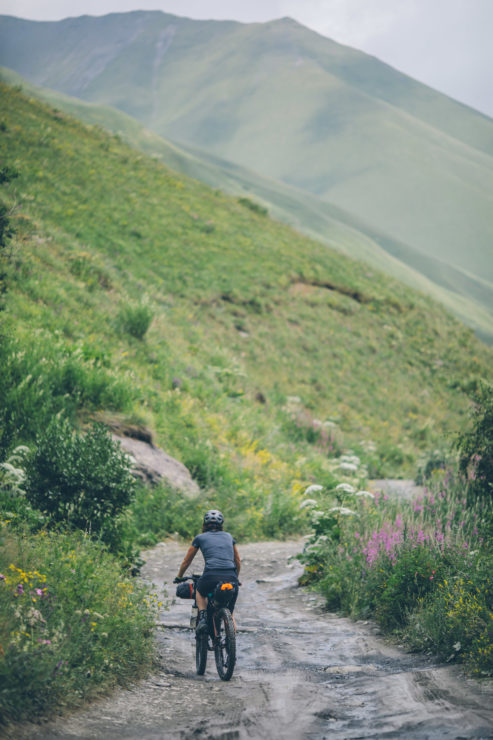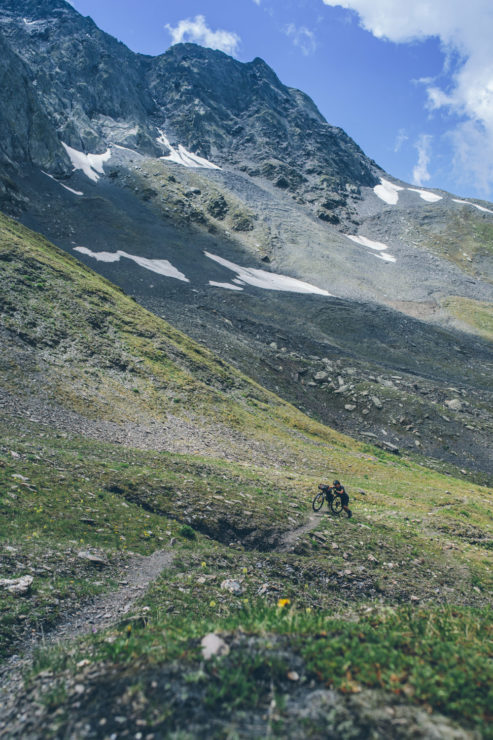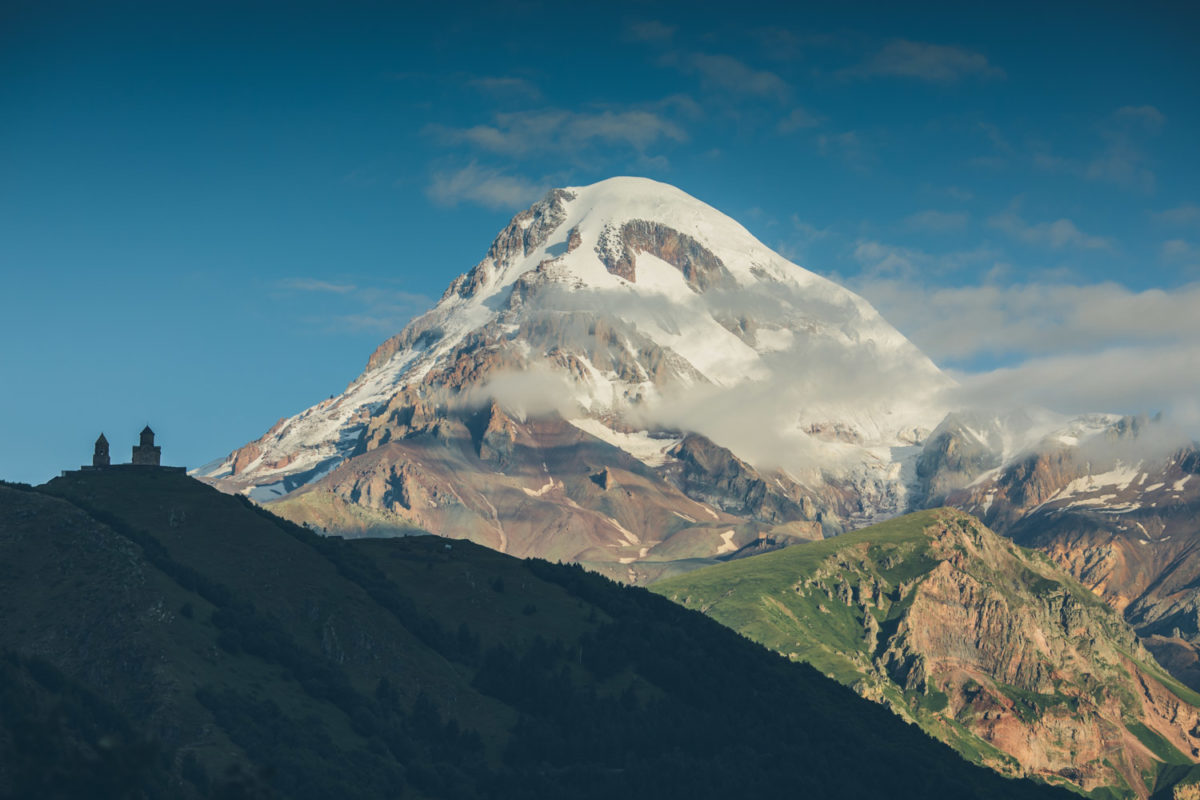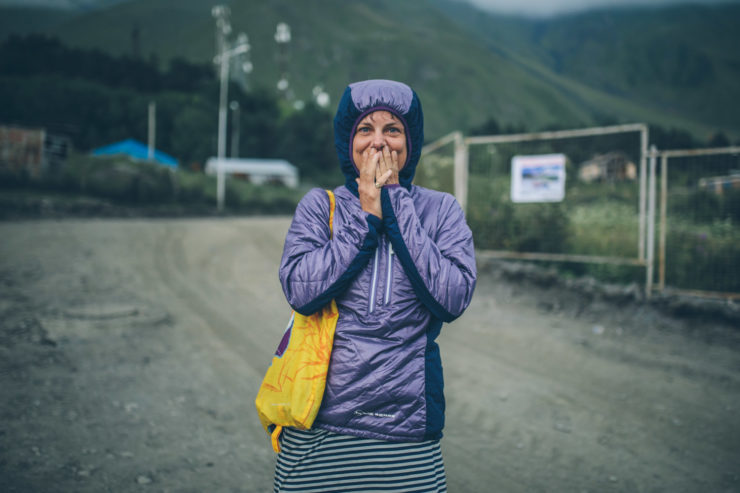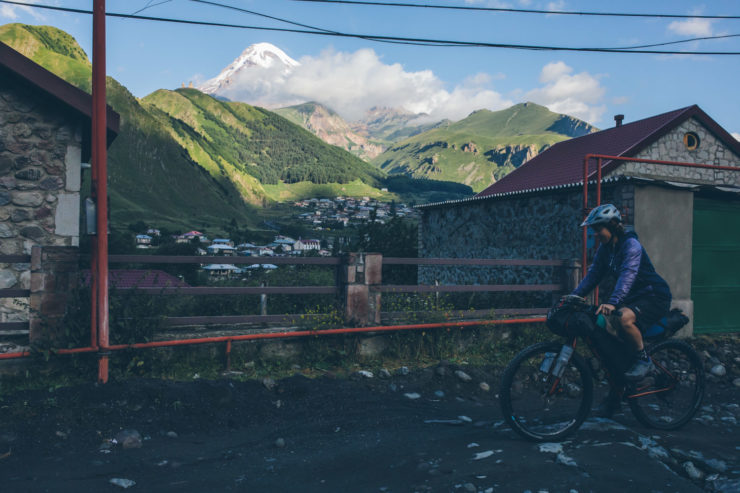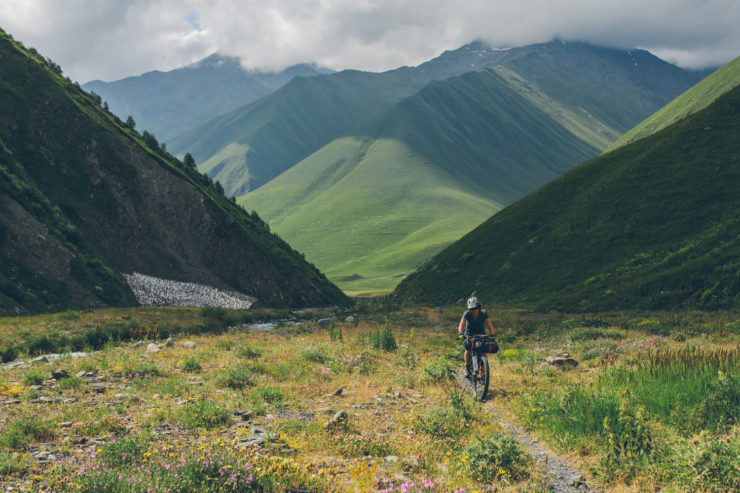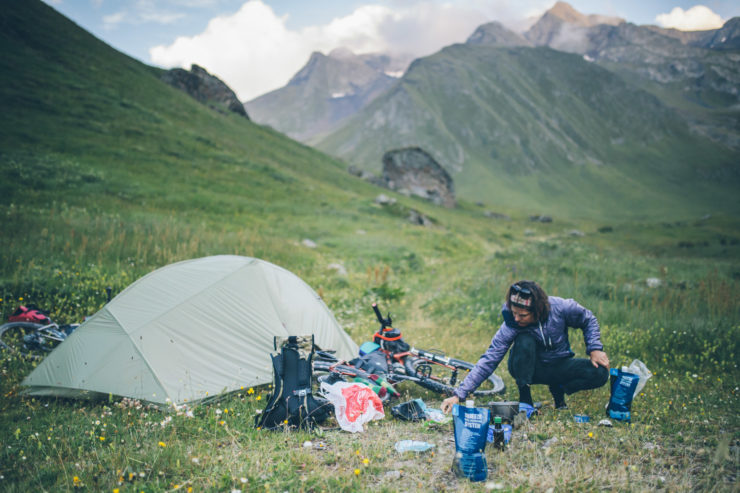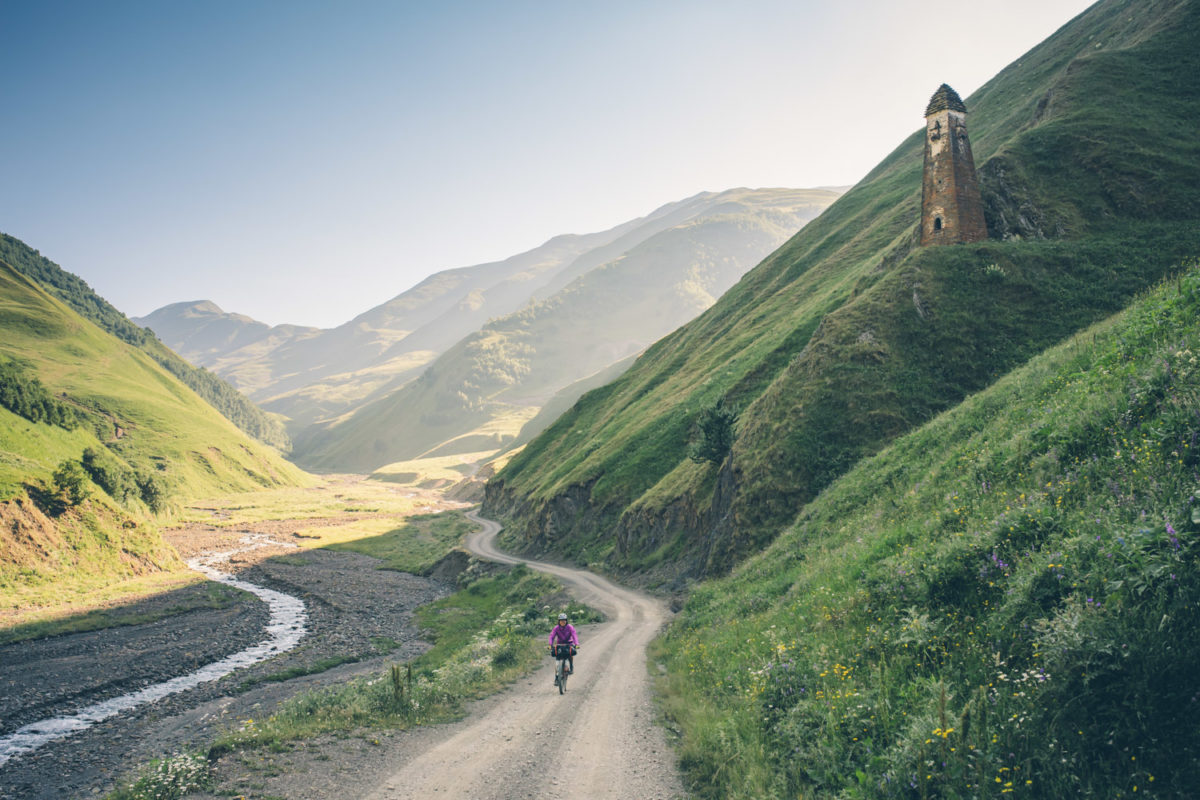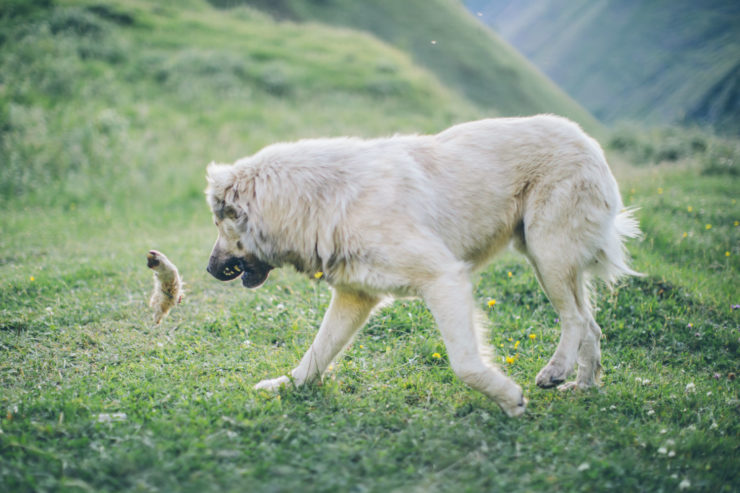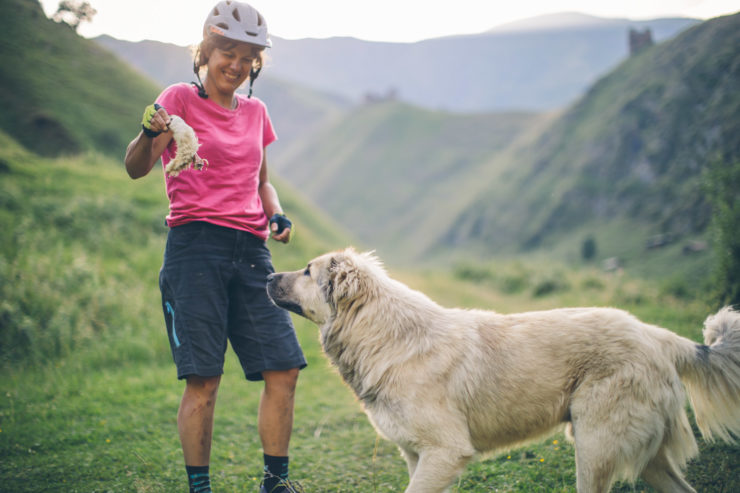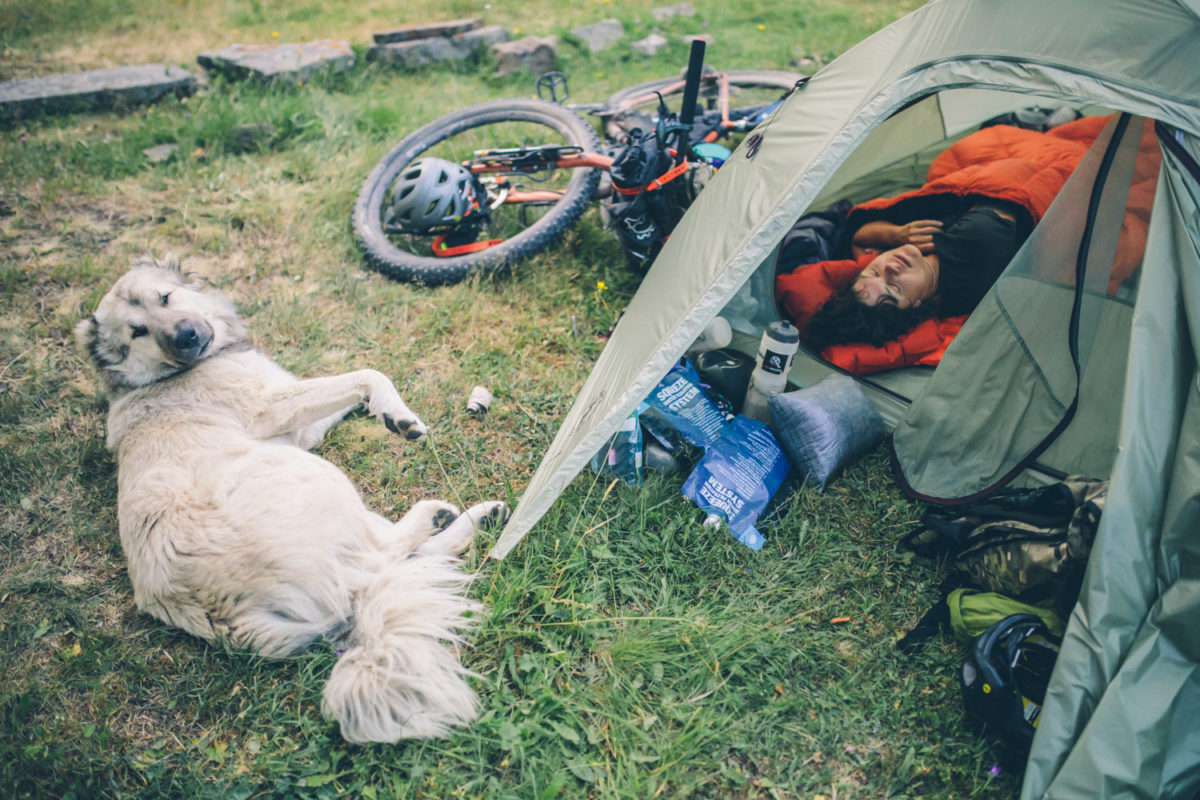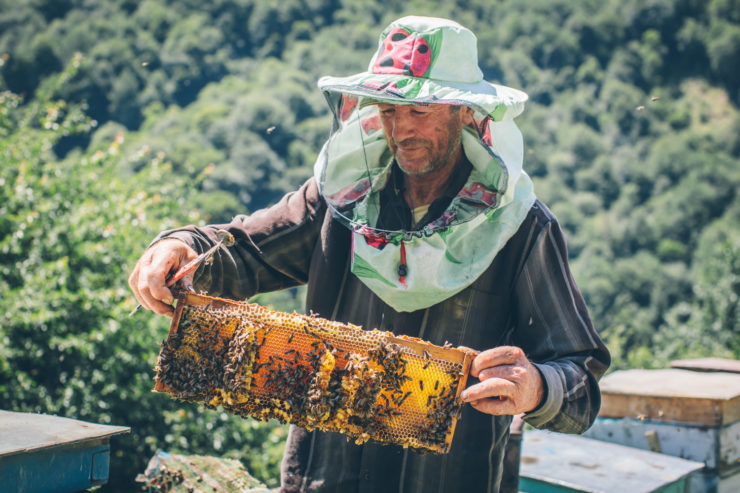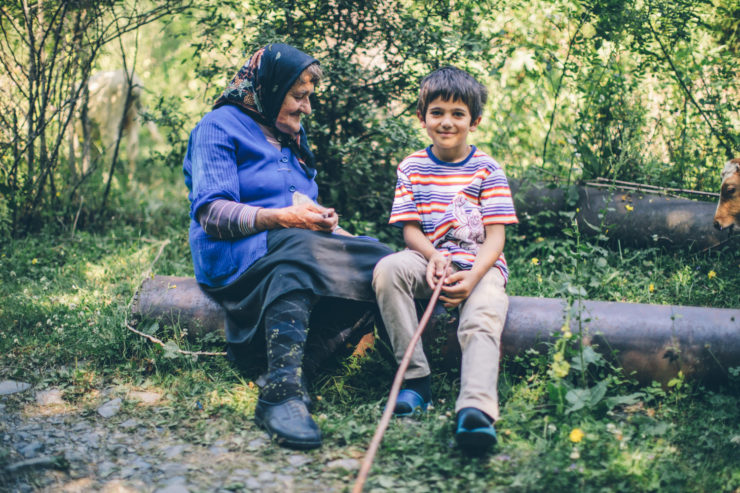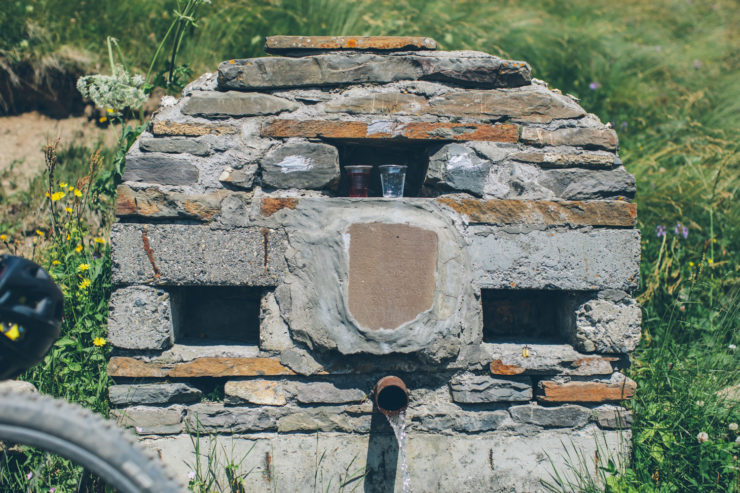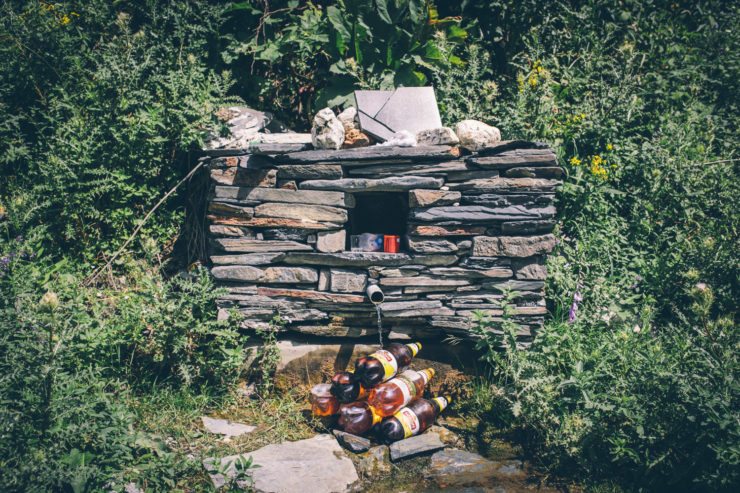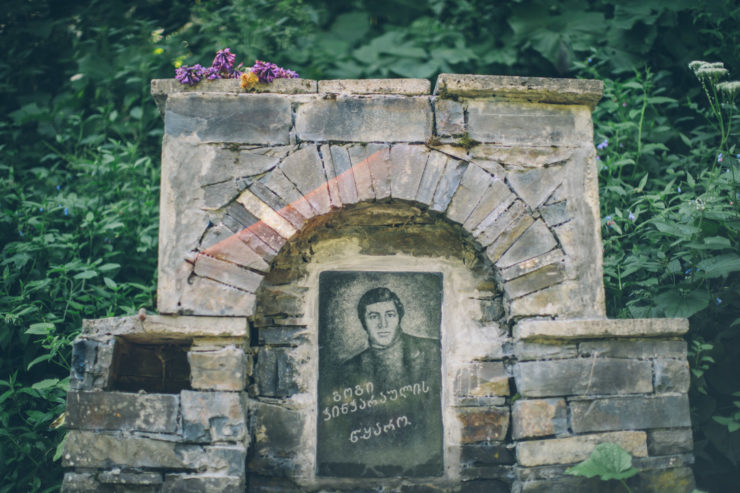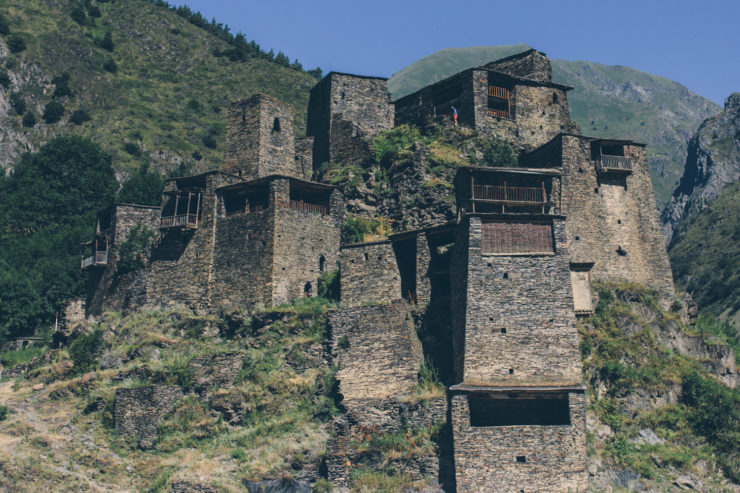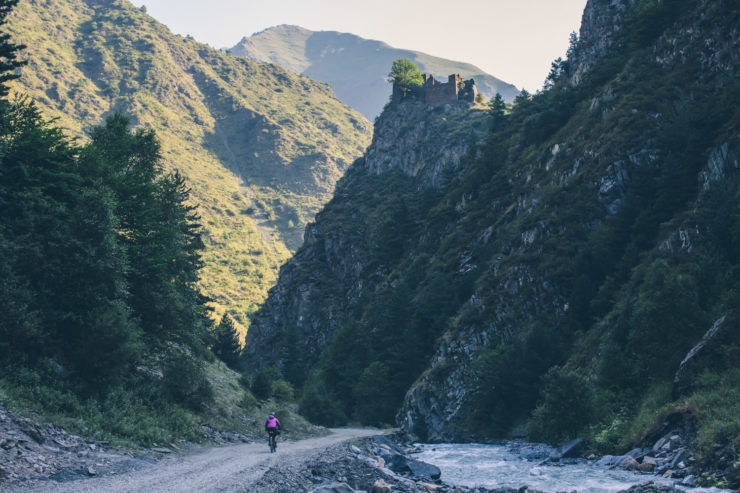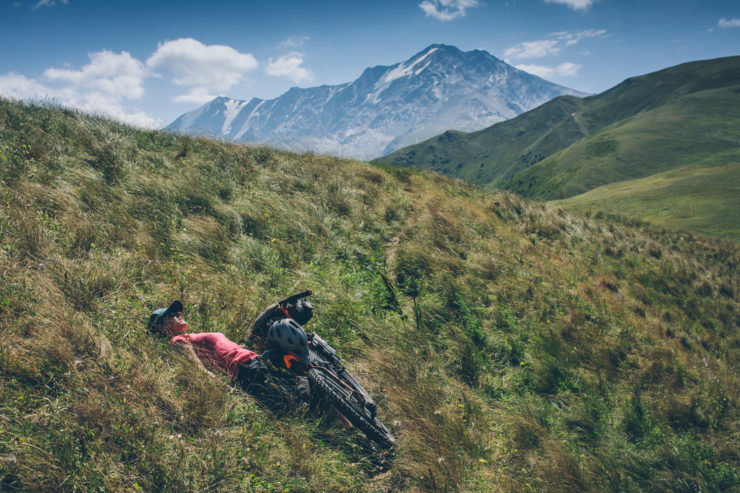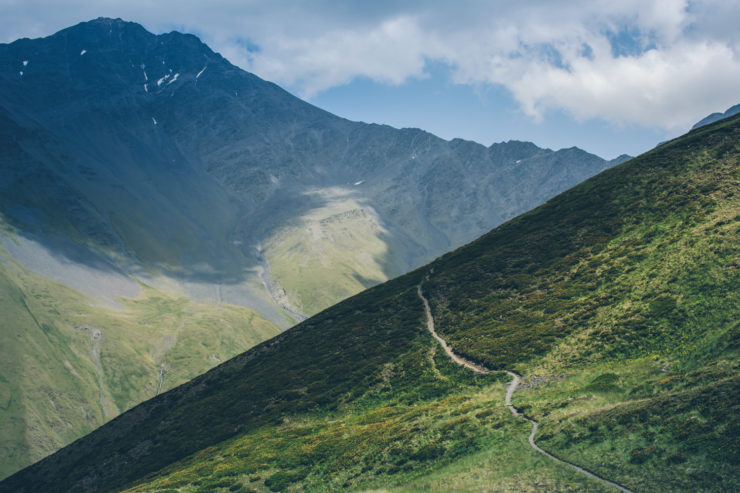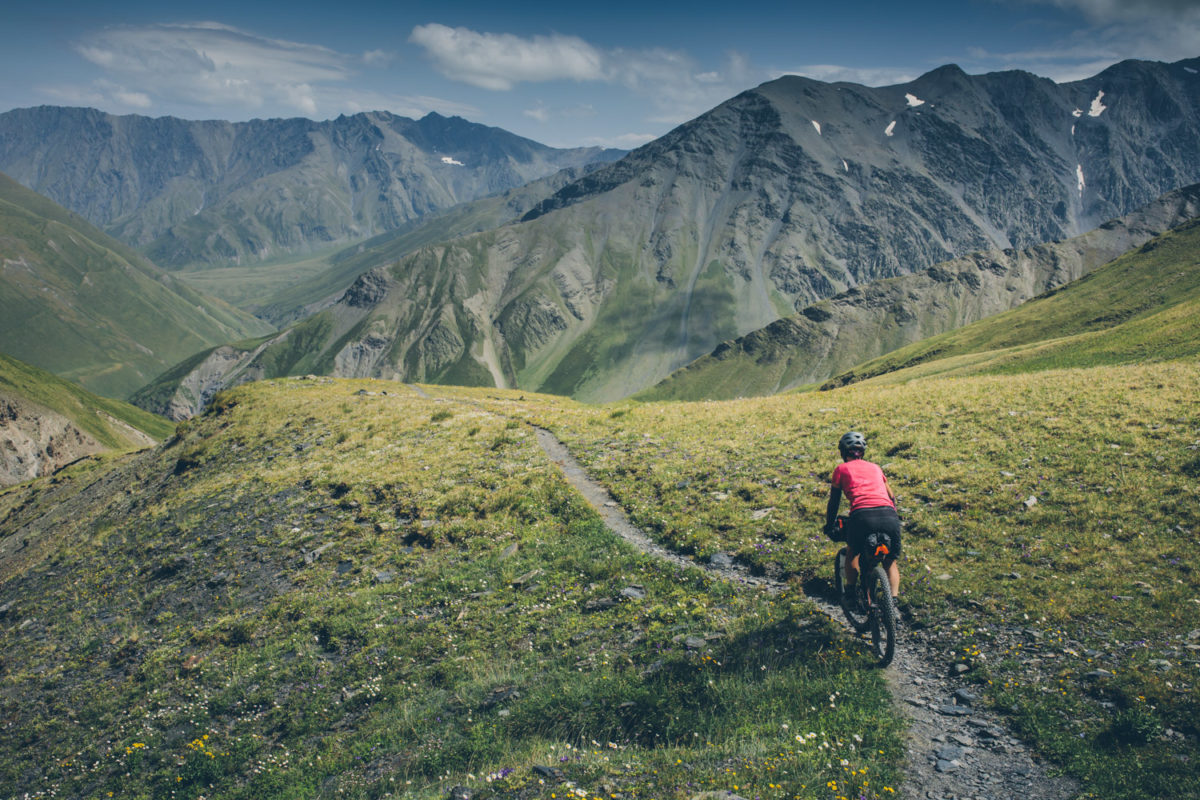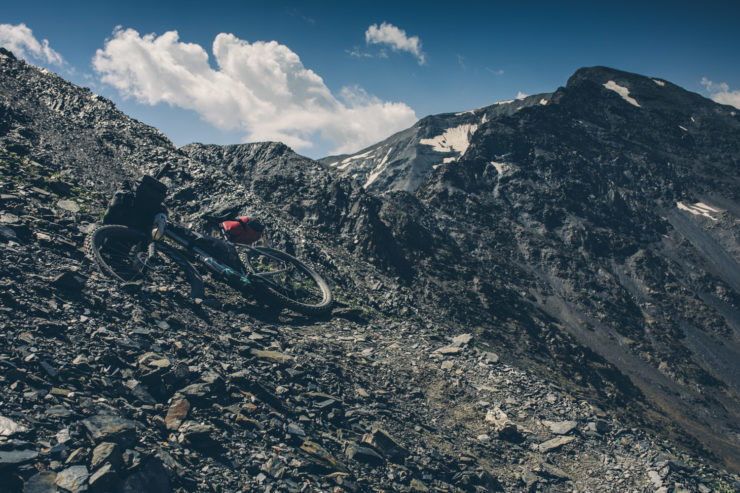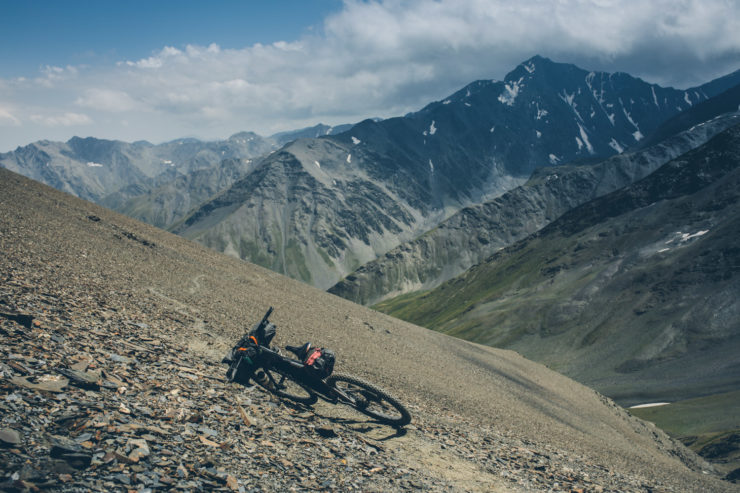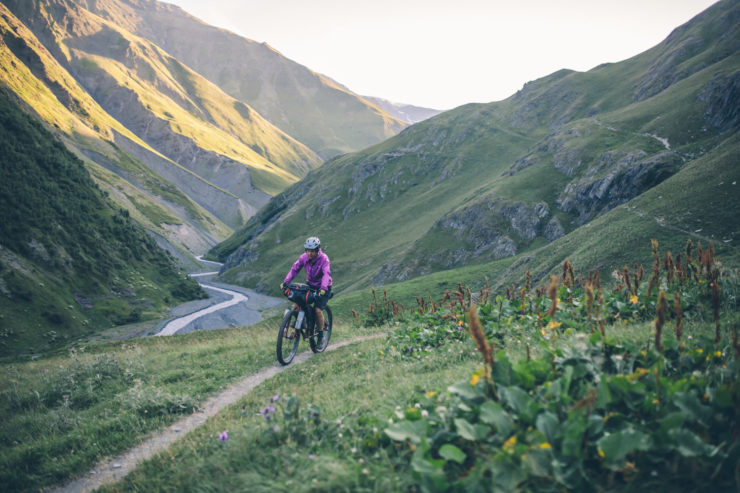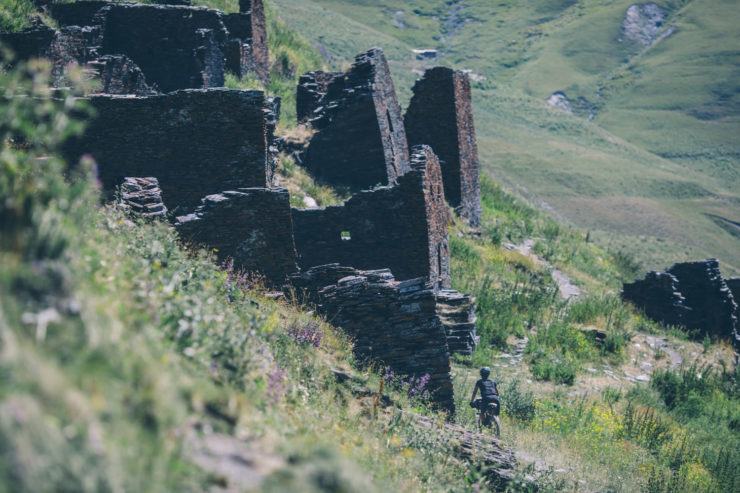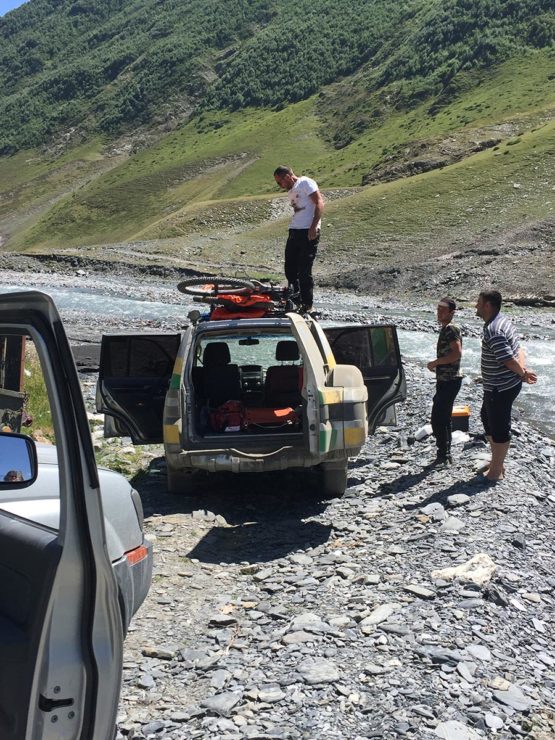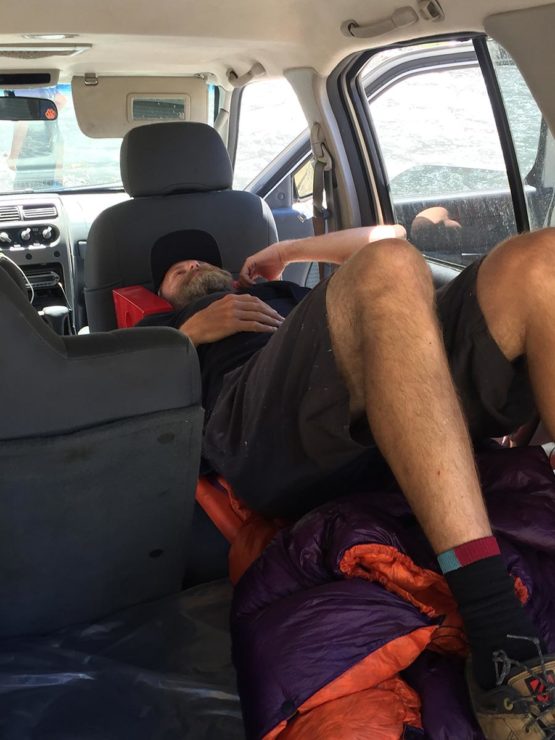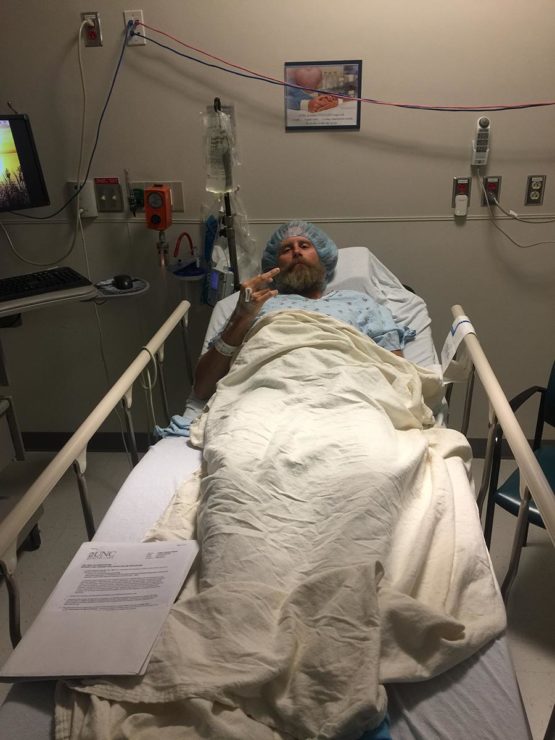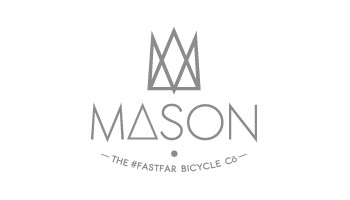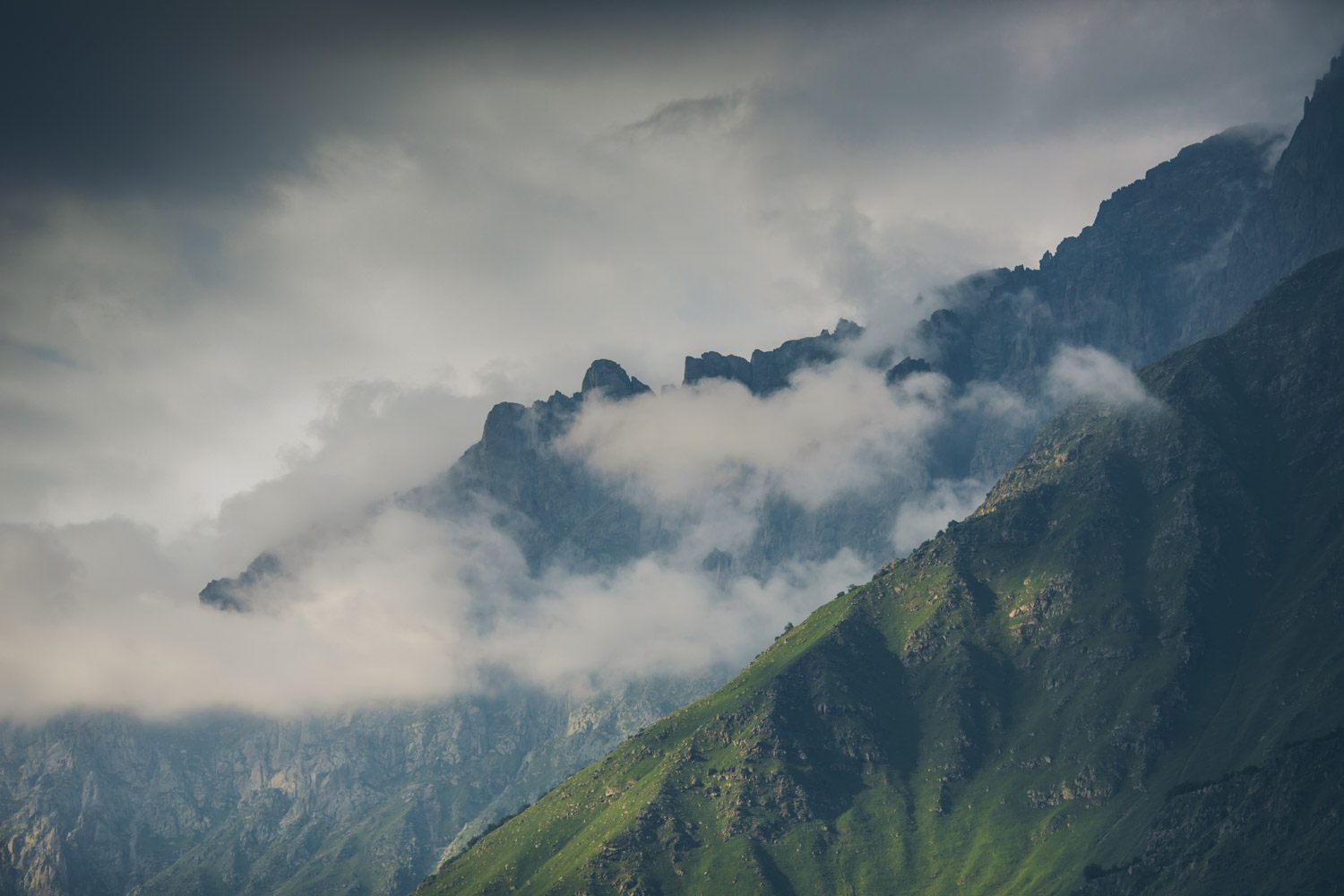
My solitary view was upward through a six inch crack in the passenger side rear window. It was around noon, hot, and the cloudless sky was tinted cobalt blue by the altitude. Occasionally I’d catch a glimpse of some scrubby evergreen treetops, a stratospheric eagle, or a jagged peak off in the distance. All of which were slightly comforting. But my head was nestled between two orange vinyl-clad cushions that smelled like 8th grade gym class. I was trying to keep my core tight, ignore the pain coursing down my left leg and focus on what was important — being thoroughly pissed off. Three sturdy Georgian men had just carted me from the four-bunk ramshackle guesthouse that I’d literally crawled into the previous afternoon and put me into the back of a truck. They drove down a rough dirt road and crossed a river that nipped at least 10° off the ambient air temperature. The medic silently asked if I was OK with a thumbs-up and questioning facial expression. I gave the OK and they portaged all 175 pounds of me on a red plastic stretcher into the official Tushetian ambulance for an even longer, rougher, yet oddly cathartic ride.
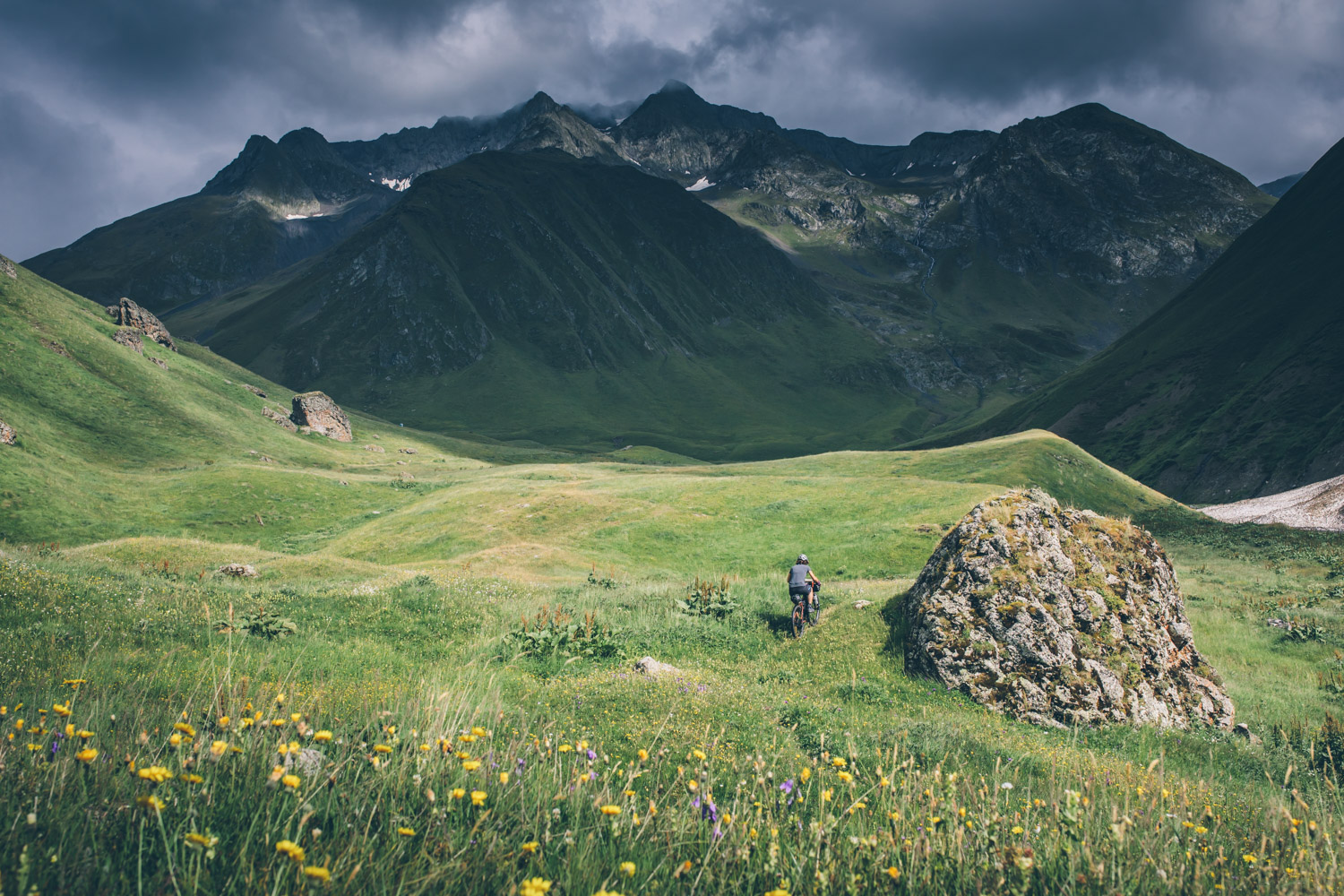
Gin had planned on riding her bike to Omalo to negotiate some kind of transport for us. Luckily she happened upon the only fluent English speaker in Girevi, a visitor from Tbilisi, before heading out of town. He proceeded to explain to our guesthouse host what the situation was. Up until that point she must have just thought that I was some eccentric American hermit whose wife catered to his every need, including preparing a sleeping pallet on the floor upon which he could lay with the friendly resident mice. As it turned out, she was a physician, and, after performing a brief physical exam, determined that my situation was quite serious. I was relieved, albeit kind of shocked, to learn that there were medics and an ambulance service in Tusheti. The local military checkpoint officers radioed to them at their headquarters in Omalo. From Omalo, it took the ambulance about two hours to cover the 18 miles to reach us in Girevi.
There’s only one road into Tusheti, and we were at the far end of it. From Pshaveli, in the Kakheti region of Georgia, it’s a 60 some-odd mile long, rugged dirt track that ascends over 6,000 feet and crests at an elevation of 2,850 meters above sea level. That’s 9,350 feet for my fellow Americanos. At the peak of the highest drivable mountain road in the Caucasus — also considered by some as one of the most dangerous in the world — lies Abano Pass, which some deem the gateway between Europe and Asia. The road was built in 1978. That it was built at all is mind-boggling given the unimaginably steep terrain in these parts. It’s only open during the summer months, from around May until October, but it can be closed anytime due to avalanches. Gin said it was a scary ride. All I could see was up, so no fear from my perspective.
We didn’t come in on that road though. We were planning on exiting on it; and exiting on it we were, just not on bikes. We had approached Tusheti from the other direction via singletrack. At the point where I was rescued we were only several days out of Kazbegi following a trekking route, roughly the same route — although backwards — taken by Joey Schusler and crew when they made the epic Trail to Kazbegi film*. We’d worked our way over Atsunta Pass the day prior, pass number three and the crowning achievement in our traverse of Tusheti National Park — a week long sojourn in the month and a half long journey we had planned for the region. Atsunta was a grueling hike-a-bike. It required some two days and 10,000 feet worth of dense, vegetation-choked singletrack giving way to steep and crumbly scree fields with no room for error. At the top of Atsunta we crossed paths with a British family following a similar route on foot and horseback in the opposing direction. After they learned where we are from, the father kindly rolled his eyes as he informed us of another American bikepacker who was just a day or so ahead of us. Evidently this guy shouldered his bike and carried it up the steep Atsunta ascent, as well as across a chest-high swollen and tumultuous river that relegated normal people to forge via horse. Judging by the tone of his voice and the way he was looking at us, Americans are the new nutcase adventurers, replacing Germans who traditionally get the nod as the most audacious. He went on to tell me that as they passed the American on the trail, who had his bike shouldered at the time, his young daughter was saddled up on one of the otherwise confident packhorses. But the horse startled and stumbled at the sight of the bike, nearly falling down a scree field. Tragedy narrowly averted. Another confirmation of my personal — and very rational — conviction of avoiding equestrian transportation. Generally speaking it’s a control issue.
In the back of the ambulance I was completely out of control. Virginia waited on my needs. The medic and her assistants carted me in and out of vehicles, strapping our bikes on roofs, and giving me pain killer injections every hour or so to make the ride tolerable. The fact that I couldn’t oversee our bikes being lashed on was stressful enough. I could envision expensive lightweight alloy strapped loosely against a rebar steel DIY roof rack, grinding and destroying. Eventually I gave in to the helplessness, or maybe it was the drugs, and let it go. I was in the hands of chaos. The ambulance rolled through Dartlo, a village known for its medieval towers and crumbly stone structures. The British family had told us it was beautiful. I tried to raise my head up to catch a glimpse, but the pain shot down my leg like a fire-tempered shishkabob skewer. Maybe next time. Virginia described it and confirmed that it was indeed fantastic. “Thanks for the info,” I said.
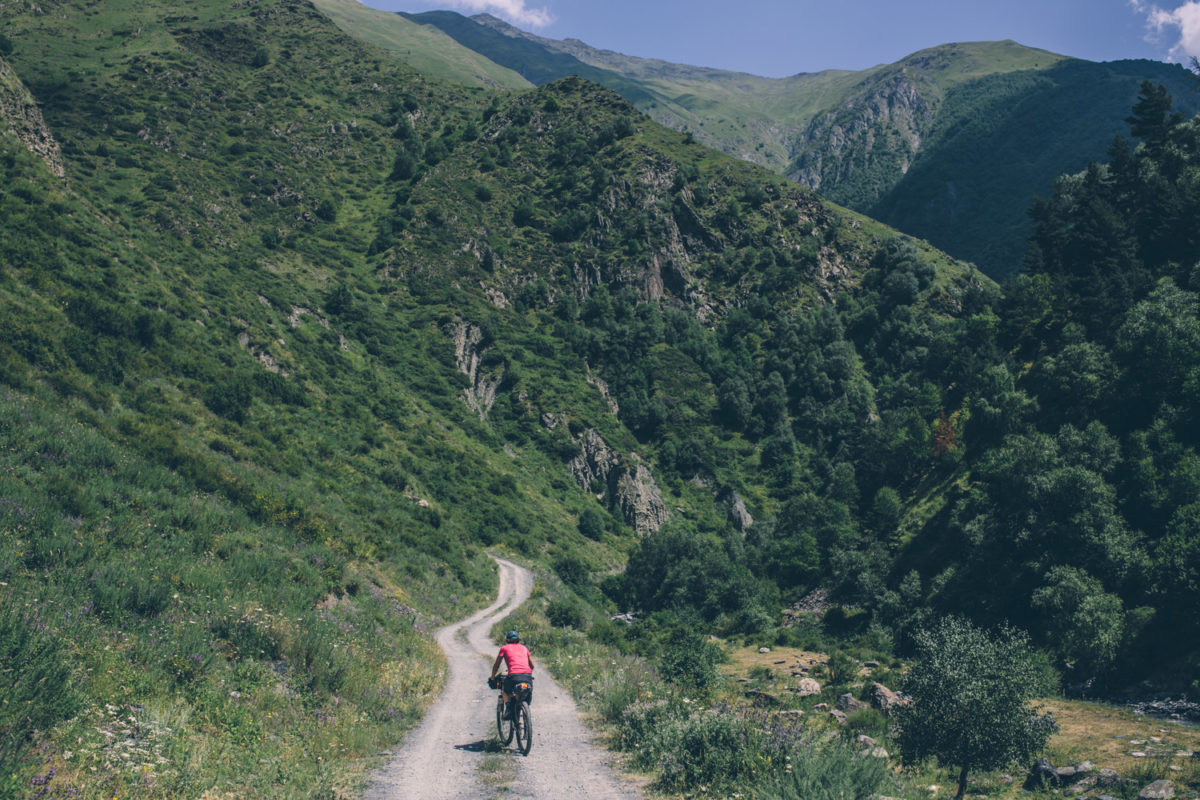
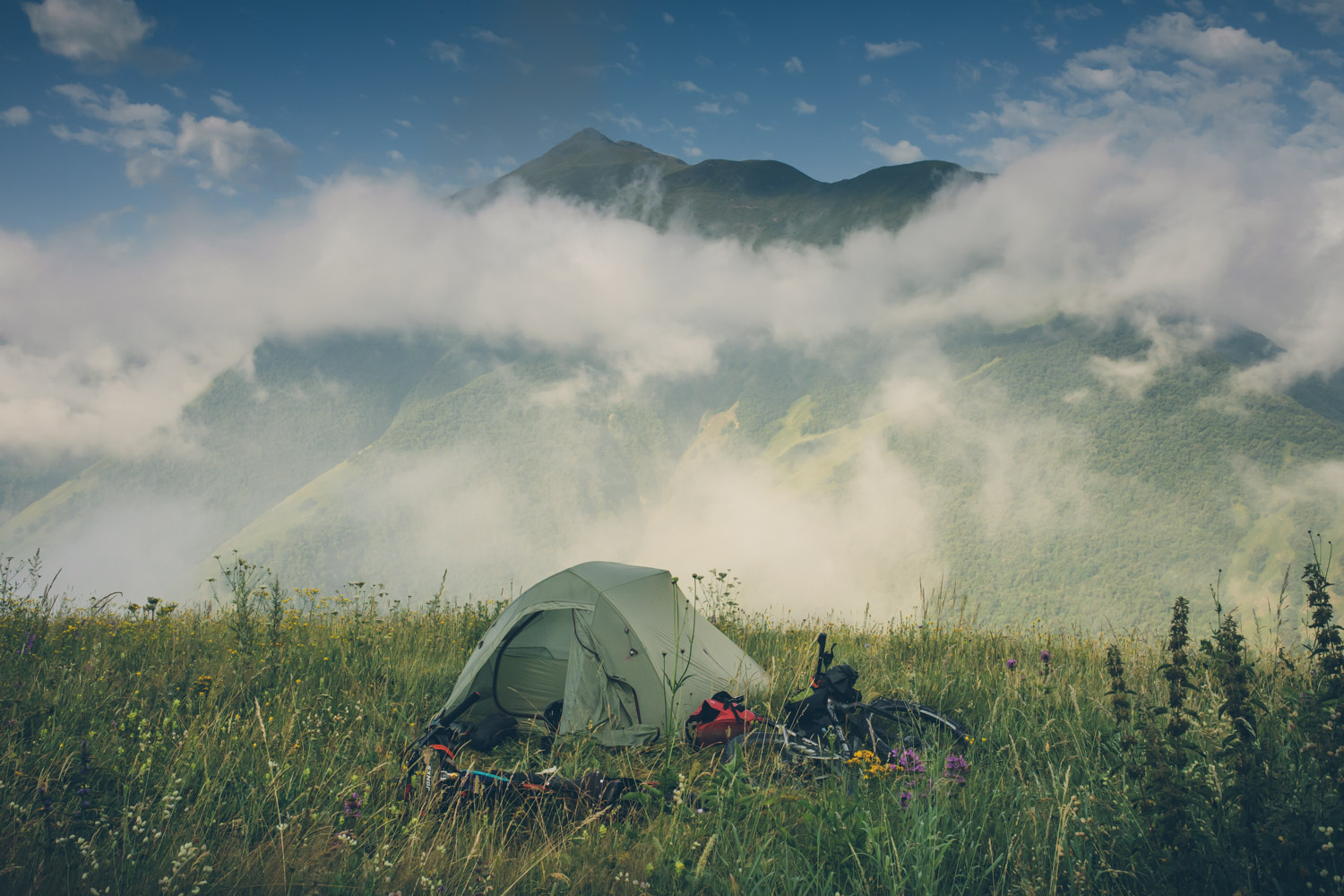
The head medic, a matronly woman in her mid fifties, looked at me with concern and again asked if I were OK, in gestures followed by, “Russell,” and a smile. I winced and smiled back with a thumbs up even though I was riding on a rigid plastic board over some of the roughest dirt roads I’d ever been privy to. Earlier that day she had misread my passport and thought my middle name, Russell, was my last name. Evidently she has a family member with the same surname. Kind of odd given that Georgia has has its own language and alphabet that’s unique to the Caucasus and far removed from western dialects. Come to find out, Russell is her Scottish son-in-law. Either way she repeated “Russell” a few times with a genuine fondness, insinuating that somewhere deep down I must be a strong and good person, and that I’d undoubtedly be OK. She’s obviously more enamoured with her son-in-law than my mother-in-law is with her’s, a vagabond mountain biker who is dead-set on doing dangerous things with her daughter. Her kindness was the first bit of warmth I’d felt from the Georgians on this trip. We expected heaps of hospitality, but there seems to be a pervasive air of “distance” amidst the Caucasus, for lack of a better term. A fog of historical conflict, struggle, and hard living in an unforgiving landscape. In that moment it seemed our small commonality cleared that away. The Georgians are a hard people to figure out. It takes a lot to get a smile. Perhaps it’s the language barrier, or maybe it’s just the fact that we hadn’t had enough time to really settle into our surroundings.
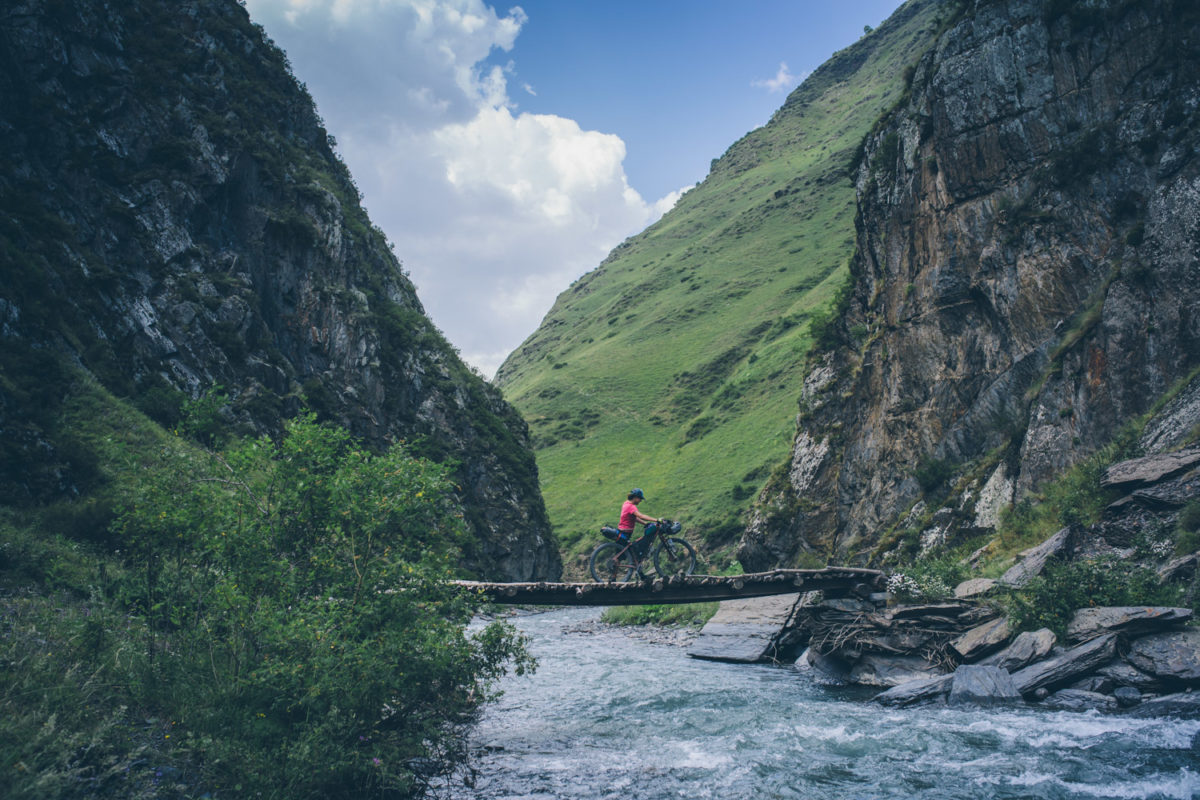
None of that seemed to matter so much at the moment. I was horizontal and the pain kept me from walking or even standing. What was important was to remain angry… mad at the fact that our month and half long trip was being cut to just one week. Pissed about all the money long spent on flights, transport, lodging, and last minute supplies. Stressed about the forthcoming money that would be spent on medical bills and flight changes. It was all gone with nothing to show for. Mad at myself for screwing up. But that wasn’t the case. As I lay there spiraling up and over Abano Pass, catching Gin’s awestruck looks out of the corner of my eye, I was somehow content. As odd as it may sound, I appreciated the situation for all that it was. I’m not saying that I’m all doom and gloom, but I have a checkered history of leaning towards the glass half-empty side of the optimism spectrum. I realized that I’ve had a pretty good run of it on our trips, and the fact Lady Luck caught up with me suddenly didn’t matter in the grand scheme of things. After all, I was alive, and how often do you get to ride on a red plastic stretcher over one of the most dangerous roads in the world?
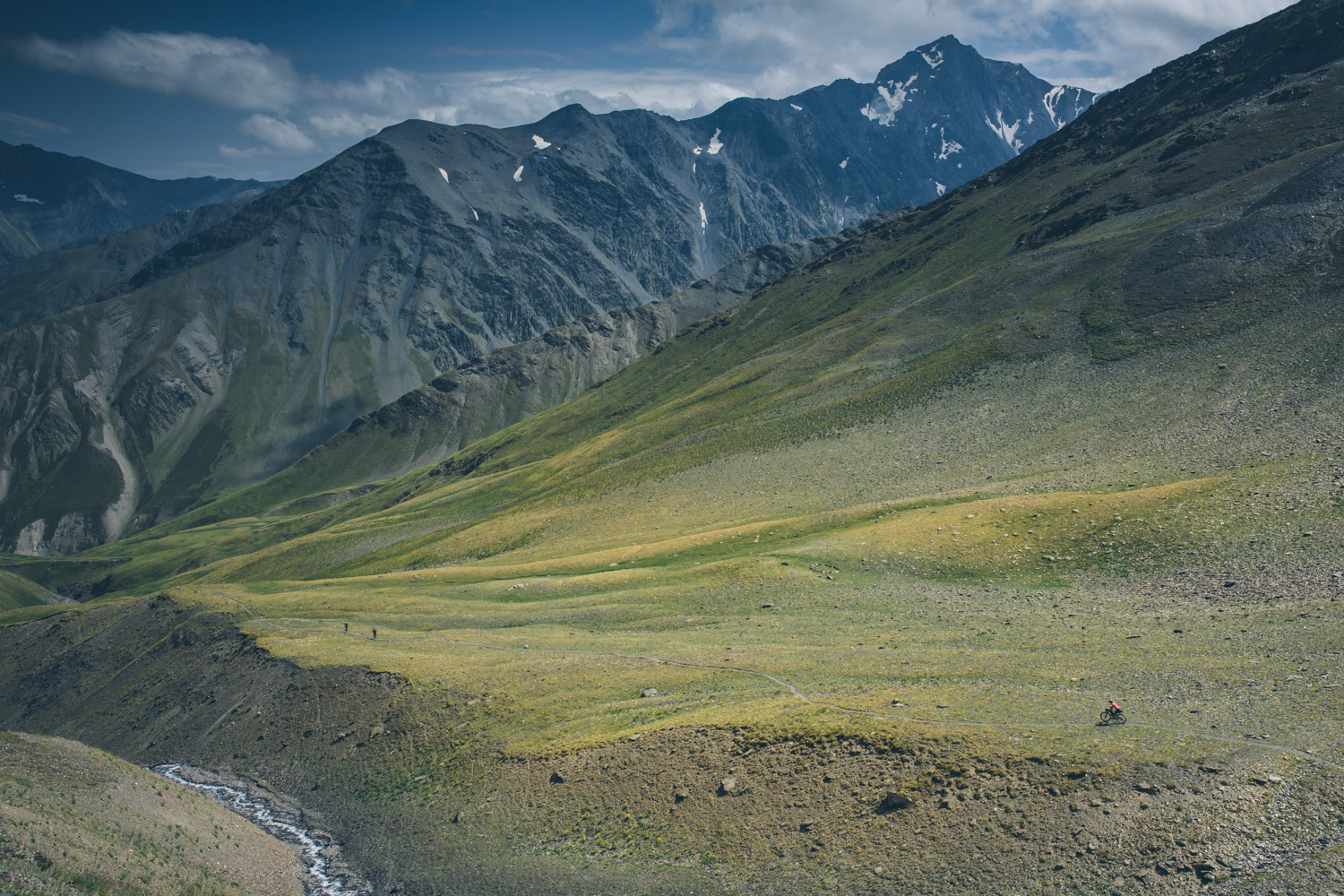
P.S. As to what landed me in an ambulance in the first place, it wasn’t an exciting scree field technical mishap, improper landing on a huck to flat, or other exciting wreck. No, far more sedentary than that. After we crossed Atsunta, we covered a dozen or so miles of singletrack. Exhausted, we ended up on the wrong side of the surging Khvakhidistskali River a couple of times, lost the trail, backtracked, and, as it was getting dark, there was a point where I had to lift our fully loaded bikes from a submerged stone over my head and onto a boulder. I got my bike up and over and as I was helping Gin I struggled a bit and lost my footing. I crumpled as I kept the bike from going into the river — little did she know she’d be carrying my bike for a half a day the next afternoon. Something didn’t feel right. We stopped to camp and ate supper before falling asleep. I awoke with a pain in my leg and after packing up it got worse. Within a mile I couldn’t stand. So yes, pretty boring on the incident scale. Just a stupid old back succumbing to a stupid and tired misstep. Fortunately we weren’t far off from a small village near a military checkpoint — that’s who called the medic the next morning. After the ‘ambulance’ ride we made it to Tbilisi where I spent a couple days being carted to hospitals and clinics, then I flew home and had surgery within a day after returning. Right now, I am typing from a reclined position, several weeks after back surgery — the longest I’ve gone without riding a bike in years. Our bikes are still in Georgia. So, we’ll be back.
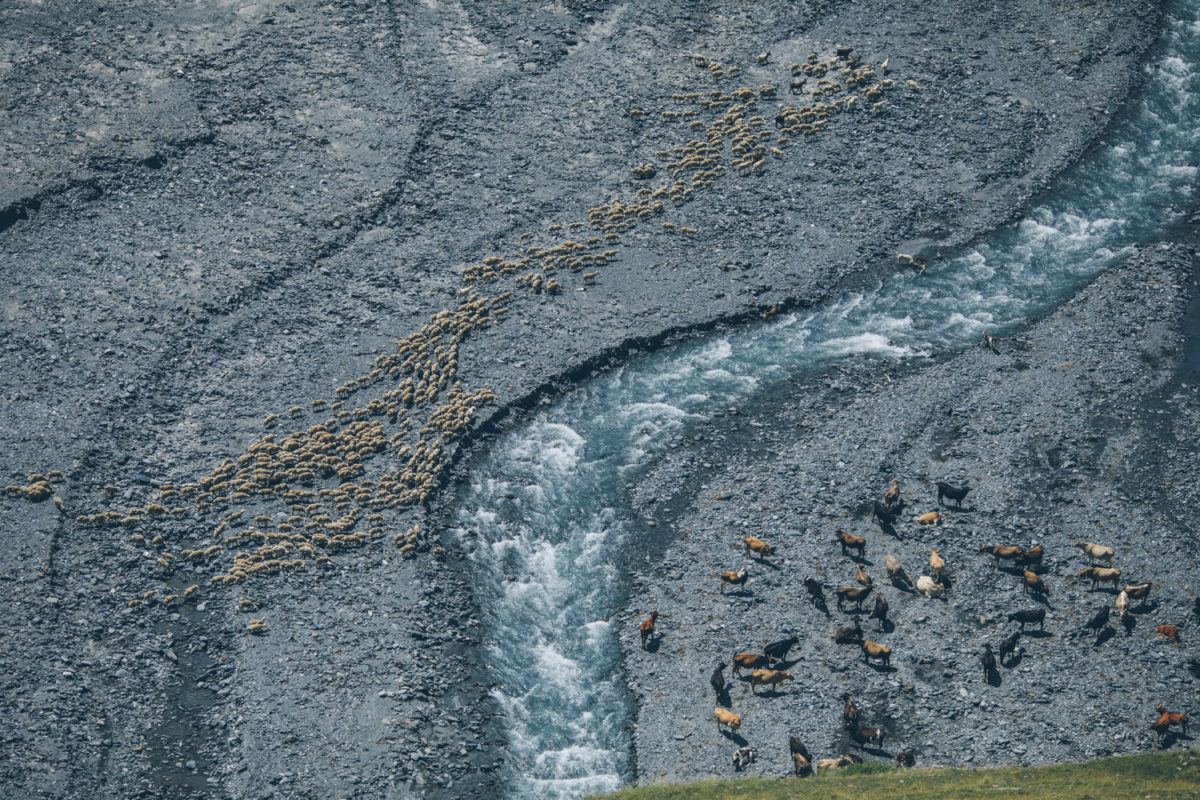
Also, make sure to check out the Trail to Kazbegi film for a different look at the area. And find Cass’ Caucasus Crossing route that goes through Tusheti National Park as well.



